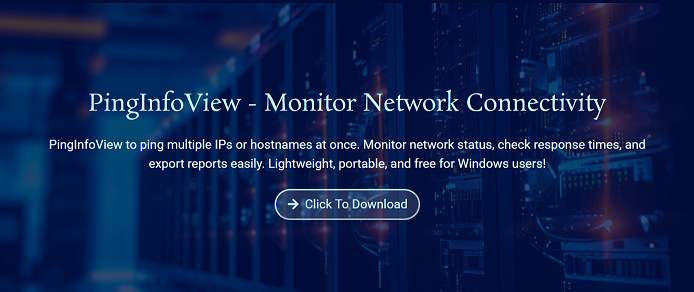How to Prepare SEC Filings for Reg D Offerings

Raising capital through a Regulation D (Reg D) offering can be an efficient way for private companies to attract investment without going through a full public registration process. However, it still comes with specific regulatory requirements—including several key filings with the U.S. Securities and Exchange Commission (SEC). Understanding what’s required, when, and how to submit these documents through the EDGAR system is essential for legal compliance and investor trust.
In this article, we’ll explore the essentials of SEC filings for Reg D offerings, how EDGAR comes into play, and how expert support services like those offered by Colonial Filings, Inc. can streamline the process.
What Is a Reg D Offering?
Reg D is a regulation under the Securities Act of 1933 that provides exemptions allowing companies to offer and sell securities without registering with the SEC. This exemption is crucial for startups, emerging growth companies, and private firms looking to raise funds while avoiding the expensive and time-consuming process of a public offering.
The two most commonly used rules under Regulation D are:
Rule 504 – Allows offerings up to $10 million in a 12-month period.
Rule 506 – Offers no cap on fundraising, but requires adherence to certain investor qualifications (i.e., accredited investors).
Although these rules exempt companies from registering their securities, they do not exempt them from making proper disclosures and filings.
Why SEC Filings Are Still Required
Even though Reg D exempts companies from full SEC registration, a Form D filing is still mandatory. This form notifies the SEC of the offering and provides information such as:
The type of offering
- Company information
- Size of the offering
- Use of proceeds
- Names of executive officers and promoter
The Form D must be filed electronically via the SEC’s EDGAR (Electronic Data Gathering, Analysis, and Retrieval) system within 15 days after the first sale of securities.
Failure to file can lead to penalties and complications with future fundraising efforts, and in some cases, state regulators may impose additional requirements.
Overview of the EDGAR Filing System
EDGAR is the SEC’s electronic system for receiving, storing, and indexing disclosure documents filed by companies. Any company submitting a Form D must:
- Apply for EDGAR access credentials, including CIK (Central Index Key) and CCC (CIK Confirmation Code).
- Prepare the appropriate documents in EDGAR-compliant format.
- Use EDGAR software or service providers to submit the documents.
For companies not familiar with the platform, EDGAR can seem technical and time-consuming. This is where third-party providers like colonialfilings.com can make a difference.
Common SEC Filings for a Reg D Offering
Here are the most relevant SEC forms and documents often involved in a Regulation D offering:
1. Form D
The foundational document for Reg D. It must be filed timely and accurately. It’s important to note that the Form D doesn’t require detailed financial disclosures, but the information must be truthful and complete.
2. Blue Sky Filings
While Form D covers federal requirements, issuers must also comply with state-level regulations, commonly known as Blue Sky laws. These often require filings in each state where securities are sold, including fees and additional forms.
3. Supplementary EDGAR Filings
Depending on the nature of your offering, you may need to file exhibits, cover letters, or amendments through EDGAR. All of these require a thorough understanding of the formatting and submission rules.
4. Annual or Event-Based Updates
If there are changes to the offering or the company, you may be required to update your Form D or submit additional filings.
Tips for a Smooth SEC Filing Process
1. Get Your EDGAR Credentials Early
Applying for access to EDGAR takes a few business days. Don’t wait until the last minute—build this timeline into your offering process.
2. Use a Professional Filing Service
Many companies outsource their SEC compliance to save time and avoid mistakes. Services like Colonial Filings, Inc. specialize in preparing and submitting documents accurately and efficiently.
3. Ensure Accuracy and Consistency
Inaccuracies in names, amounts, or offering details can trigger compliance issues. Double-check all entries and keep your legal team involved.
4. Keep Track of State Requirements
Don’t overlook Blue Sky filings. These can vary by state, and some require ongoing updates or renewals.
5. Amend Form D When Needed
Any material changes in the offering or its terms must be updated through an amended Form D. This keeps your filing compliant and up to date.
The Role of Financial Printing and Document Typesetting
Beyond the initial filings, many companies require help with financial document preparation—especially when raising large sums from institutional investors. Here’s how Colonial Filings, Inc. supports this need:
- Typesetting of Private Placement Memorandums (PPMs)
- Creation of investor reports and communications
- Formatting for XBRL tagging and EDGAR conversion
Accurate formatting not only improves the clarity of your financials but ensures you meet all technical filing standards.
How Investor Communication Ties In
Filing your Form D is just one part of a successful Reg D offering. Clear and consistent investor communication is essential. Investors need timely updates, access to financials, and a professional presentation of data.
Services like colonialfilings.com help ensure your investor communications are professional, compliant, and aligned with SEC expectations.
Benefits of Working With SEC Filing Experts
Working with seasoned providers brings several advantages:
- Accuracy: Professionals reduce the risk of errors that could lead to SEC inquiries or delays.
- Speed: Filing specialists know how to meet tight deadlines, especially around offering closings.
- Customization: Services are tailored to your specific needs—whether you’re raising $500K or $50 million.
- Peace of Mind: With experts handling your filings, you can focus on growing your business and engaging with investors.
Conclusion
A Reg D offering is an excellent way for private companies to raise capital, but it still requires careful attention to regulatory filings. From Form D to EDGAR compliance and investor communication, every step must be handled with care.
Whether you’re new to the process or have filed before, partnering with a specialized service like Colonial Filings, Inc. ensures your documents are compliant, professional, and filed on time. Visit colonialfilings.com to learn more or get expert help for your next offering.



